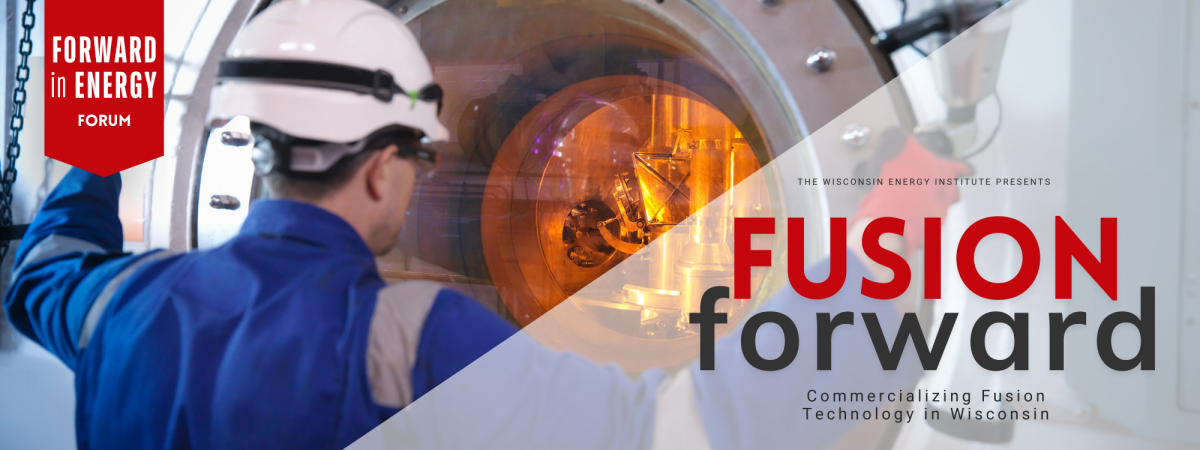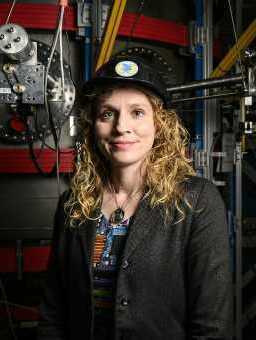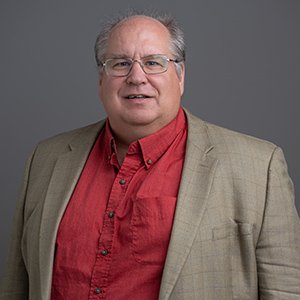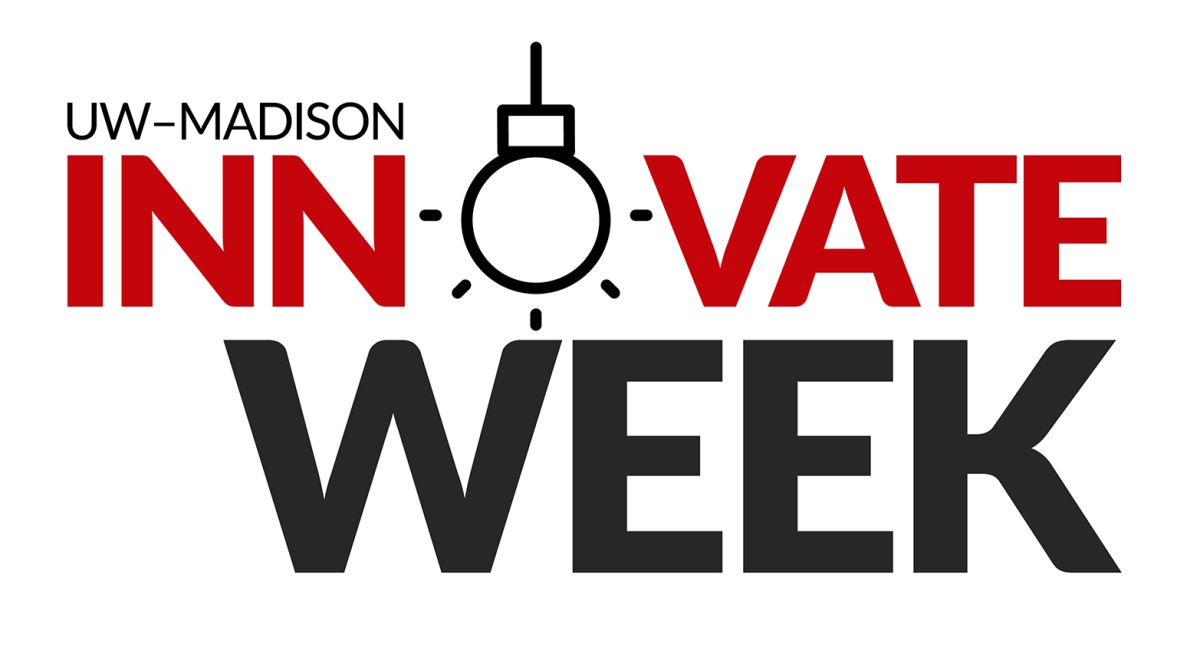Recent technological breakthroughs, favorable policies, and increased investment have brightened the prospects for fusion energy, a long-studied and promising source of cheap, pollution-free, and virtually limitless power. As several startup companies aim to advance fusion from the research lab to commercial reality, Wisconsin is well positioned to become an economic hub for this groundbreaking technology. However, the journey to commercialization is complex and lengthy. Join us for an engaging discussion with Wisconsin-based fusion companies and researchers as they share both their visions for bringing fusion technology to market and the challenges they face.
This Forward in Energy Forum is presented as part of UW-Madison Innovate Week. The event will take place on Tuesday, September 24 at 4:30 p.m. CT both in-person at the Wisconsin Energy Institute and online via Zoom Webinar (subject to change).
The University of Wisconsin-Madison is a barrier free campus and is committed to providing equal opportunity for participation in all programs, services, and activities. If you need an accommodation for this event please let us know by emailing outreach@energy.wisc.edu or calling 608-890-0946. Requests made with less than 3 weeks’ notice will be honored when possible.

Moderator
 Dr. Adelle Wright
Dr. Adelle Wright
Assistant Professor of Nuclear Engineering and Engineering Physics, UW-Madison
Originally from Melbourne, Australia, Dr. Adelle Wright is currently an Assistant Professor in the Department of Nuclear Engineering and Engineering Physics at the University of Wisconsin - Madison. Prior to joining the faculty at UW-Madison, Adelle was a Staff Research Physicist at the Princeton Plasma Physics Laboratory’s Theory Department in Princeton, New Jersey. Her primary area of research expertise is in magnetohydrodynamics (MHD), which describes macroscopic properties of highly ionised gases (i.e. plasmas) in the continuum limit, in laboratory, space and astrophysical environments. Her research focuses on understanding and predicting the macroscopic properties of magnetically confined plasmas for the two mainstream fusion energy concepts (tokamaks and stellarators) and, simultaneously, contributes to the design of next generation fusion devices. Adelle received her PhD from the Australian National University (ANU) in 2021, where she worked under the supervision of Em. Prof. Robert (Bob) Dewar and Prof. Matthew Hole at the ANU’s Mathematical Sciences Institute in Canberra, Australia. Prior to that, she received her Bachelor of Science (Honours) in physics from ANU in 2015.
Panelists
Dominick Bindl, Vice President of Technical Development, Realta Fusion
Dominick Bindl currently leads the technical teams at Realta Fusion as the VP of Technical Development. Dominick oversees teams integrating experimental research, theoretical and computational research, engineering analysis and design toward delivery of Realta’s fusion pilot plant. Dominick has over 15 years of experience translating fundamental research into commercial products. Prior to Realta, Dominick spent time working across a range of technologies, including semiconductors, membrane-based separations, energy storage, and manufacturing systems. Dominick holds a PhD in Materials Science from the University of Wisconsin – Madison.
Steffi Diem, Assistant Professor of Nuclear Engineering and Engineering Physics, UW-Madison
 Prof. Diem is the PI of the Pegasus-III Experiment, a fusion energy experiment studying innovations in startup techniques to reduce the cost and complexity of future fusion power plants. Her research focuses on utilizing radio frequency (RF) waves to heat and drive current in magnetically confined plasmas, having led and contributed to experimental research on a variety of magnetic confinement devices including: Proto-MPEX (ORNL), the Madison Symmetric Torus (MST) Experiment (UW-Madison), the National Spherical Torus Experiment (NSTX), and MAST (CCFE, UK). Additionally, she has been involved in the development of modeling tools and simulations of edge localized mode (ELM) pellet pacing experiments on the DIII-D National Fusion Facility using M3D-C1. Prof. Diem's current research is focused on electron Bernstein wave (EBW) heating and current drive experiments on the Pegasus-III Experiment at UW-Madison as well as collaborations, both domestically and internationally, on RF injection in magnetically confined fusion plasmas.
Prof. Diem is the PI of the Pegasus-III Experiment, a fusion energy experiment studying innovations in startup techniques to reduce the cost and complexity of future fusion power plants. Her research focuses on utilizing radio frequency (RF) waves to heat and drive current in magnetically confined plasmas, having led and contributed to experimental research on a variety of magnetic confinement devices including: Proto-MPEX (ORNL), the Madison Symmetric Torus (MST) Experiment (UW-Madison), the National Spherical Torus Experiment (NSTX), and MAST (CCFE, UK). Additionally, she has been involved in the development of modeling tools and simulations of edge localized mode (ELM) pellet pacing experiments on the DIII-D National Fusion Facility using M3D-C1. Prof. Diem's current research is focused on electron Bernstein wave (EBW) heating and current drive experiments on the Pegasus-III Experiment at UW-Madison as well as collaborations, both domestically and internationally, on RF injection in magnetically confined fusion plasmas.
Prof. Diem received her PhD in Plasma Physics from Princeton University. Prior to joining UW-Madison, Prof. Diem was a Research and Development Scientist in the Fusion Energy Division at Oak Ridge National Laboratory and spent two years on long-term assignment at the DIII-D National Fusion Facility at General Atomics in San Diego, CA.
Chris Hegna, Co-founder, Vice President of Stellarator Physics Optimization, Type One Energy
 Dr. Chris Hegna has a distinguished background as a faculty member in the departments of Nuclear Engineering and Engineering Physics and Physics at the University of Wisconsin-Madison. There, he led the Center for Plasma Theory and Computation for over two decades. Dr. Hegna’s expertise lies in theoretical plasma physics, and he is internationally acknowledged as a specialist in the magnetic confinement of plasmas and nuclear fusion. His academic contributions include authoring or co-authoring over 200 publications and mentoring more than two dozen Ph.D. students at UW-Madison. His academic and professional achievements have been recognized with numerous accolades. He has been honored as a Fellow of the American Physical Society, was a co-recipient of the 2014 John Dawson Award for excellence in plasma physics research, received the Nuclear Fusion Journal Award, and was designated the Harvey P. Spangler of the College of Engineering at UW-Madison. Furthermore, Dr. Hegna has exerted influential community leadership in the international fusion sector, including serving on the DOE’s Fusion Energy Science Advisory Committee.
Dr. Chris Hegna has a distinguished background as a faculty member in the departments of Nuclear Engineering and Engineering Physics and Physics at the University of Wisconsin-Madison. There, he led the Center for Plasma Theory and Computation for over two decades. Dr. Hegna’s expertise lies in theoretical plasma physics, and he is internationally acknowledged as a specialist in the magnetic confinement of plasmas and nuclear fusion. His academic contributions include authoring or co-authoring over 200 publications and mentoring more than two dozen Ph.D. students at UW-Madison. His academic and professional achievements have been recognized with numerous accolades. He has been honored as a Fellow of the American Physical Society, was a co-recipient of the 2014 John Dawson Award for excellence in plasma physics research, received the Nuclear Fusion Journal Award, and was designated the Harvey P. Spangler of the College of Engineering at UW-Madison. Furthermore, Dr. Hegna has exerted influential community leadership in the international fusion sector, including serving on the DOE’s Fusion Energy Science Advisory Committee.
For more than two decades, Dr. Hegna has been a leading advocate of stellarators in the fusion community. At UW-Madison, he directed a research initiative to enhance the stellarator concept through targeted optimization of key plasma physics confinement issues. At Type One Energy, Dr. Hegna spearheads the Stellarator Physics Optimization Group, serving as the primary driver of the company’s stellarator design.
Eli Moll, Vice President and General Manager of Systems and Manufacturing, SHINE Technologies
 As Vice President & General Manager of Systems & Manufacturing, Eli oversees research efforts across all SHINE business units, supporting both scientific projects and prototype development aligned to SHINE’s technical vision. With 10+ years of experience, he previously served as R&D Manager, overseeing nuclear physics and data science. Eli holds a Ph.D. in Nuclear Engineering from the University of Wisconsin – Madison, with a focus on adjoint thermal neutronics, computational radiation transport, and statistical analysis.
As Vice President & General Manager of Systems & Manufacturing, Eli oversees research efforts across all SHINE business units, supporting both scientific projects and prototype development aligned to SHINE’s technical vision. With 10+ years of experience, he previously served as R&D Manager, overseeing nuclear physics and data science. Eli holds a Ph.D. in Nuclear Engineering from the University of Wisconsin – Madison, with a focus on adjoint thermal neutronics, computational radiation transport, and statistical analysis.

